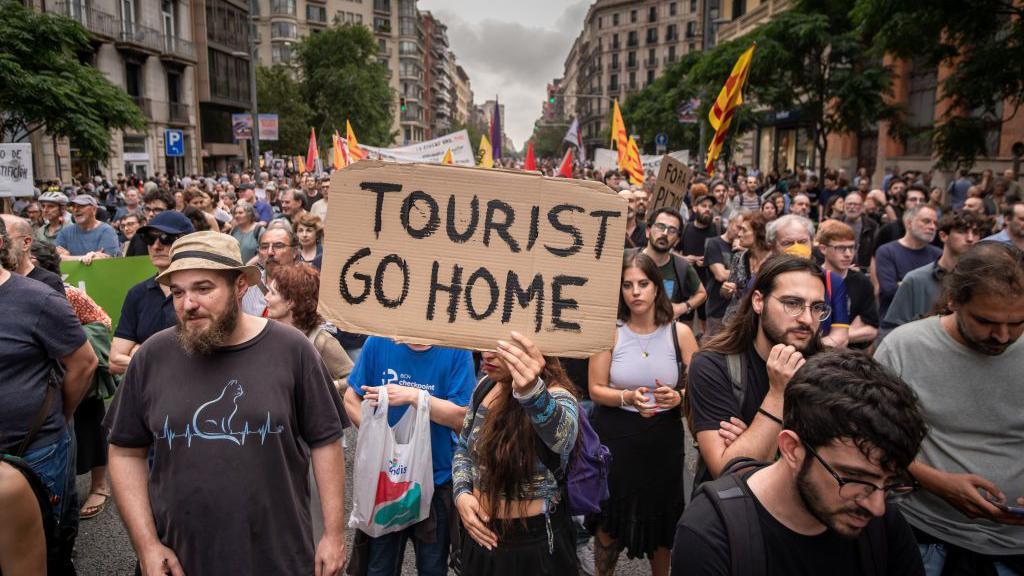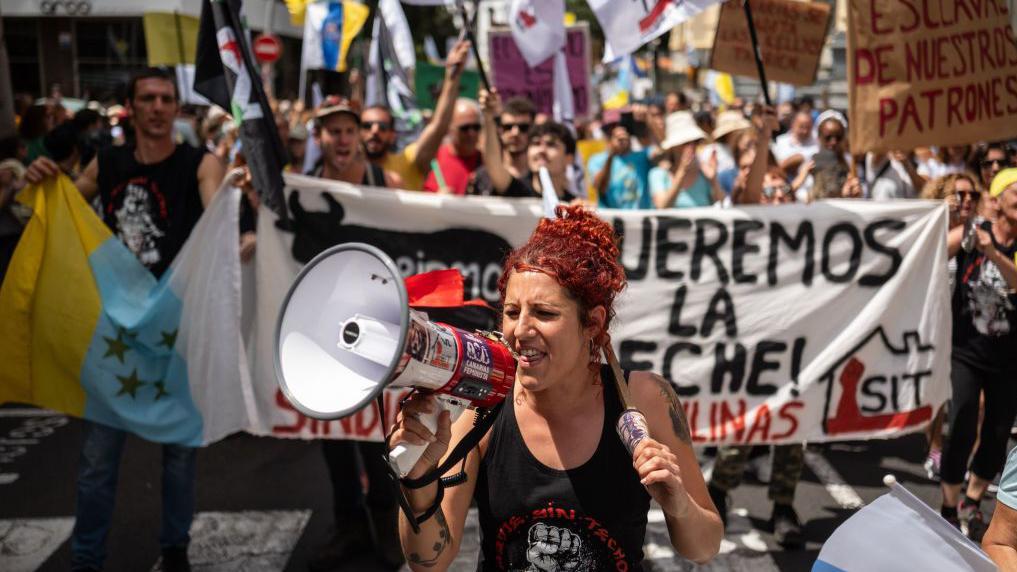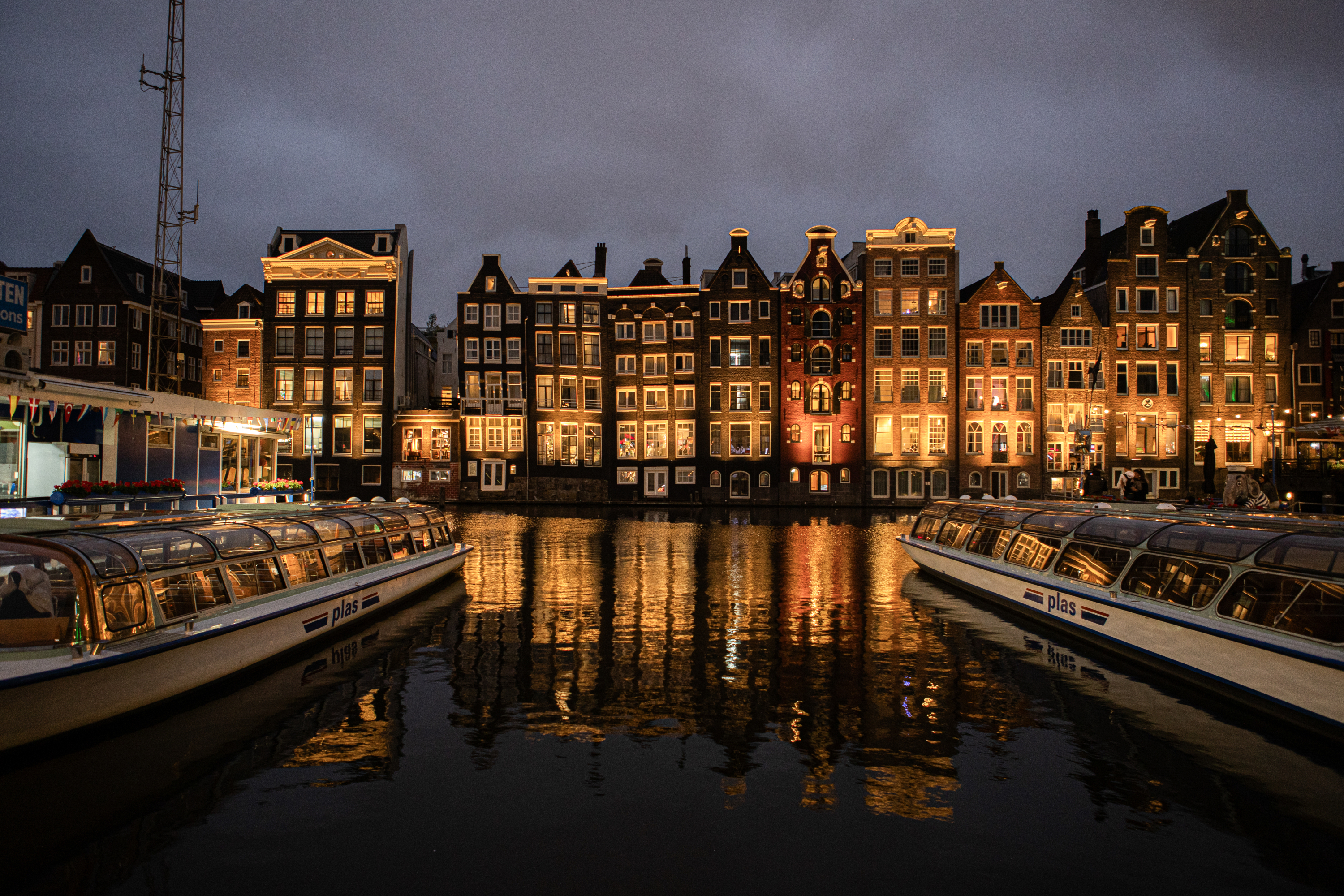Viral destinations: what to do about mass tourism?

American writer David Foster Wallace embarked on a week-long Caribbean cruise and wrote a lucid and bitter portrait of American mass culture in Something Supposedly Fun I'll Never Do Again . “All the megalines offer basically the same product. It's not a service or a series of services. It's not even a week of fun. (…) It's more of a feeling.”
Three decades later, this text continues to accurately address the cultural foundations that, at least in the West, drive millions of people to try their luck: traveling in search of a sensation. One they've pre-purchased. Whether they find it or not will depend on how high their expectations are. Also on chance, which, admittedly, rolls like a roulette ball in those casinos teeming with tourists.
In the era of total digitalization and algorithms that drive our preferences and opinions, mass tourism paradoxically maintains its appeal for a large number of travelers. Despite the growing individualism generated by à la carte living, working, and leisure models, when it comes to traveling—even after the COVID pandemic —a vast majority doesn't mind sharing a destination with thousands of people if their mimetic experience—if their sensation, to paraphrase Wallace—fits in a selfie , a like, or a good social media thread to showcase.

There have been protests from locals in some cities like Barcelona against mass tourism. Photo: Getty Images
For this reason, well into the 21st century, the massification of tourism still leaves one question unanswered: how should it be addressed? Finding one answer, or several, to the enormous pressure on cities, destinations, populations, and resources is more urgent than ever.
The discomfort Spanish government forecasts indicate that 2025 will end with another record for foreign tourist arrivals to the country (which is the second most visited in the world, behind France). Last year, it shattered records with 94 million travelers, and tourism spending has grown again . The World Tourism Organization (UNWTO) states in its latest report that the Middle East, Africa, and Europe have already overcome the downturn caused by the pandemic and are above 2019 levels. Tourism has climbed to 10 percent of the world's GDP. And in the case of Spain, it already exceeds 12 percent of GDP (the projection for Colombia in 2025 is 5 percent of GDP).
But good data always has its downside. It's true that the Spanish model doesn't base its profitability solely on responding to massive demand that appreciates the safety and competitive prices offered by its coasts and cities, but it's a very important slice of the pie, and each record number of arrivals locks the economic model even further into its own labyrinth . Because it makes it even more dependent. And because it blurs the incentives for change.
Mass production today offers income that no one is willing to give up: it creates jobs, generates consumption and opportunities, and increases revenue . It is the curtain of large numbers that also hides many other realities, some of them quite uncomfortable. In times of climate crisis, it is an activity threatened by global warming.
At the beginning of this year, director and writer David Trueba wondered whether "milking our only collective property, the city, the landscape, the essence of our way of life" is an intelligent way to grow . For thousands of people suffering the effects of massification, there is no room for debate. In the spring of 2025, thousands of people have taken to the streets in cities across Spain, Portugal, and Italy to demand a real change of model. Discontent is the best fuel for protest.

Thousands of Canarians took to the streets to protest the influx of tourists. Photo: Getty Images
In the Balearic Islands (composed of Mallorca, Cabrera, Menorca, Ibiza, and Formentera), beyond the overcrowding of beaches and coves, the tourist bubble is restricting access to housing and generating serious social imbalances. To cite two extreme examples: first, it is difficult to find qualified professionals such as healthcare specialists if the amount allocated to rent is exorbitant; and second, the camps for tourism workers—with tents and caravans near the hotels where they are employed—emerge as a clear failure of the system.
These citizen marches, which are taking place across much of the country, demand an end to "speculation, inequality, and endless growth." The movement in the Canary Islands also demands "the immediate halt of projects in areas of high ecological value, the demolition of those declared illegal, a hotel and holiday moratorium, a residency law, and the implementation of the real tourist tax."
In the most dynamic cities where this activity is transforming central neighborhoods and generating a considerable pool of fraudulent accommodations, neighborhood associations are calling for urgent measures to prevent local residents from abandoning their homes and for a plan to combat overcrowding and noise. The Spanish Ministry of Consumer Affairs and Madrid City Council estimate that within the capital's boundaries, there are 15,000 tourist apartments operating without a license. In 2024, 600 cases were opened. In Barcelona, 800 orders to cease activity were issued. And in the city of Malaga, no more will be authorized in neighborhoods where this supply exceeds 8 percent.

Airbnb is the leading platform for vacation apartment rentals. Photo: Istock
Discontent with overcrowding is flaring in many cities, but is tourismophobia on the rise? It shouldn't be... if action were truly taken against the excesses that bother the local population. The sector warns of the "nonsense" that a widespread climate of rejection of an activity that is the country's economic lifeblood would entail.
According to calculations by Exceltur, the organization that brings together Spain's largest tourism companies, tourism created more than 72,000 new jobs last year and 493,000 since the end of 2020. The Tourism Board adds that the activity contributes €64 billion to the balance of payments.
This business and professional association regrets that, for some, the solution lies "in provoking confrontations or demonstrations." Its president, Juan Molas, believes that tourismophobia "creates social tension" and does not create the conditions to resolve the "overcrowding in some destinations at certain times of the year." He proposes working toward a more balanced system: seasonally adjusted and decentralized. "Six autonomous communities (states) account for more than 90 percent of the tourism we receive, some 84 million visitors. The remaining 11 share only 9 million."
A change of model Environmental organizations advocate a different approach. Greenpeace Spain spokesperson Elvira Jiménez believes the sector has adopted "a public discourse in favor of sustainability," but when it comes down to it, "it continues to prioritize increasing tourist arrivals and spending over resource conservation and the coexistence of local communities."
“The change in the model cannot come from a unilateral response from business leaders. We all have the right to participate in the conversation,” the NGO insists. Jiménez suggests ideas such as moderating supply, further diversifying the tourist season, and reducing pressure on resources by more decisively implementing the plans already in place within the Spanish and European frameworks for combating climate change. He adds that the eco-tax “is a stopgap” if understood as the only proposal to slow arrivals.
Juan Molas adds that the solution cannot be to "penalize tourists." However, in the absence of effective surgical measures, more and more destinations are turning to this approach. It's already in place in Venice, Bali, at the entrance to Mount Everest, and also in some French national parks , to name just a few examples. In the Japanese city of Kyoto, they have been more forceful, expressly prohibiting travelers from accessing some important downtown streets. In Spain, the debate over the eco-tax has returned with a vengeance.

Amsterdam wants to limit hotel stays to 20 million a year. Photo: Melissa Schriek for The New York Times
In a 2019 article in Ethic, journalist Luis Meyer urged "not to focus on the massive arrival of tourists, but rather on the creation of a sustainable model." Six years later, the challenge remains. Canary Islands anthropologist Fernando Estévez González argued that the great revolution, like almost all truly transformative changes, comes from within. It's difficult to stop mass tourism if we proudly participate in it. And he praised the figure of "a reflective tourist (...) who is already aware of the authenticity on display." Hopefully. Trendy cities in Spain are moving in the opposite direction.
If you have to plan everything down to the last detail, even booking a dinner date with friends weeks in advance; if improvising a plan becomes impossible due to sky-high demand, aren't you also disrupting a way of seeing and living life that is so appealing to many of those who visit Spain each year?
Mass tourism not only impacts communities, resources, and the economy. It also alters habits and customs and homogenizes the landscape. It makes us all a little less distinct. It seems strange to hear, as the poet said, that the important thing isn't reaching the destination, but being aware that you're traveling the path. Now, what's important is being there. And telling the tale. And letting others know. In the face of viral destinations, who will remember Machado and his "Walker, there is no path, only wakes in the sea" in a few years?
(*) Ethic is a knowledge ecosystem for change through which we analyze the latest global trends through a commitment to quality information and under an essential editorial premise: progress without humanism is not truly progress.
eltiempo





